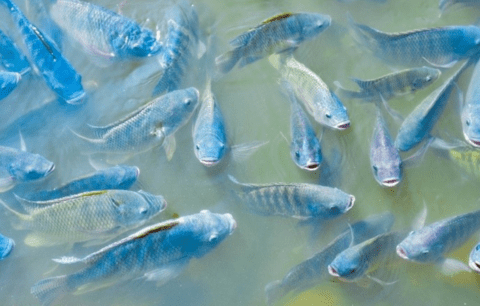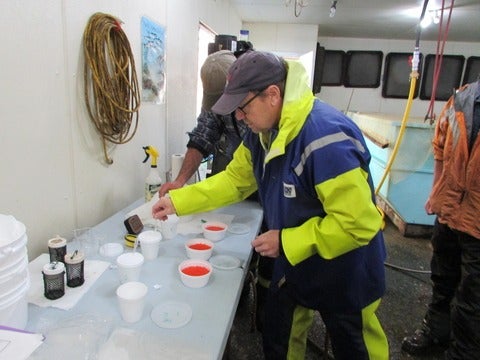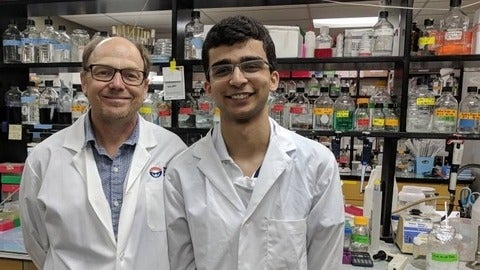Research in my laboratory is directed towards characterizing fish immune systems at the molecular level. A detailed knowledge of the molecules used as signals and receptors in the mammalian immune system has allowed more effective control of disease through vaccines and drugs. Despite the large number of immunologically important genes that have been isolated from fish, many are only understood at the DNA and RNA level. Detailed knowledge of how the proteins encoded by those genes function is required to meet the growing need for vaccines and drugs to control diseases in aquaculture. A deeper knowledge of the molecules involved in teleost immune systems also provides insight into the evolution and function of equivalent molecules in mammalian immune systems.
Dr. Dixon is a Virtual Researcher on Call. Find out more information by visiting the Virtual Researcher on Call website.
News
IDRC Awards $2.1 million to Dr. Brian Dixon
Probiotics and Triploid Salmon - an new NSERC strategic grant!
High School Volunteer Shines!
Sajeev Kohli, who spends part of his High School co-op in teh Dixon lab was recently in the news!
http://www.cbc.ca/news/canada/kitchener-waterloo/sanjeev-kohli-cancer-nanomedicine-nanoparticle-drug-carriers-biogenius-biogeneius-1.4683869


